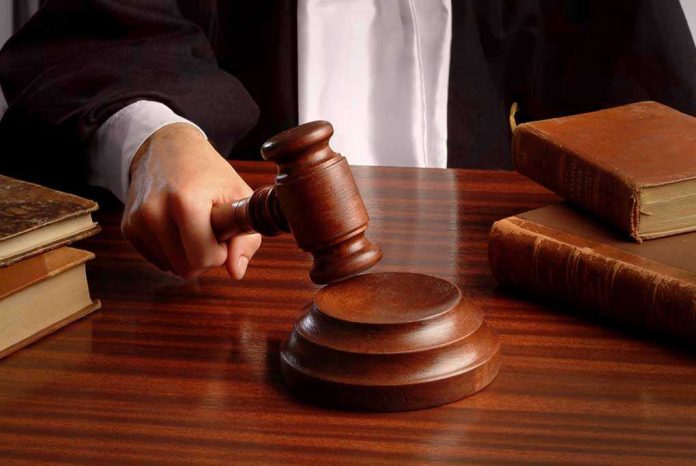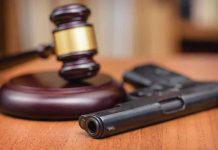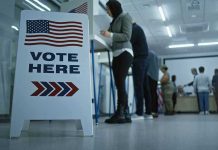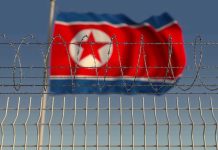
Jury selection concluded in federal court for the high-profile case against Ryan Wesley Routh
Story Snapshot
- Jury seated for Ryan Routh’s federal trial over the attempted assassination of Donald Trump in West Palm Beach, Florida.
- Routh allegedly plotted for weeks, seeking military-grade weapons and surveilling Trump’s movements.
- The Secret Service’s vigilance prevented violence, highlighting persistent threats to conservative figures.
- The case underscores legal complexities and political tensions shaping security for high-profile leaders.
Jury Seated as Trump Assassination Attempt Case Heads to Trial
Jury selection concluded in federal court for the high-profile case against Ryan Wesley Routh, accused of attempting to assassinate President Donald Trump at the Trump International Golf Club on September 15, 2024. Routh allegedly aimed a rifle at Trump from a concealed vantage point, but a Secret Service agent intervened before any shots were fired. The jury, composed of twelve members and four alternates from five Florida counties, will weigh charges including attempted assassination, assault on a federal officer, and firearms violations.
Federal prosecutors contend that Routh meticulously planned his attack for weeks before the incident. Evidence indicates he surveilled Trump’s golf outings, used online channels to try to acquire military-grade weapons—even seeking an anti-aircraft device—and selected a position known for security vulnerabilities. The attempt came just weeks after Trump survived a separate assassination attempt in Pennsylvania, amplifying concerns about persistent threats against conservative leaders and the evolving tactics of would-be attackers.
Security Failures and the Challenge of Protecting Conservative Leaders
Investigators revealed that Routh’s chosen location was a spot frequently exploited by paparazzi, underscoring gaps in venue security even at high-profile, private properties. The Secret Service’s rapid response, which involved a vigilant agent identifying Routh’s rifle and firing first, averted disaster. Trump was immediately escorted to safety while Routh fled the scene in a vehicle. This swift intervention is now under review as a model for future protective operations, but the proximity of two recent assassination attempts highlights ongoing vulnerabilities for political figures—particularly those targeted for their unapologetic defense of traditional American values.
Routh, who is representing himself in court—a rare and risky choice in federal criminal trials—faces a formidable legal battle. Judge Aileen Cannon, a Trump appointee, presides over proceedings that are drawing intense public scrutiny. Prosecutors argue that Routh’s actions were driven by political motives and methodical planning, while the defense maintains a plea of not guilty. The trial is expected to run two to four weeks, with testimony from FBI, Secret Service, ATF, and local law enforcement officials. Legal experts note the complexity of prosecuting political violence in an environment where rhetoric and security are deeply intertwined.
Implications for Security, Law, and Conservative Values
The Routh case has already triggered heightened security for all political candidates and renewed debate over the adequacy of current protective protocols. Short-term, law enforcement agencies have increased scrutiny at campaign events, and there is a growing call among conservatives for both tougher penalties and more robust security measures to deter future threats. Long-term, the trial’s outcome may spur legislative or procedural reforms, influencing how threats to public figures are managed and prosecuted in an age of rising polarization. The incident also spotlights the resilience of conservative leaders and the vital importance of safeguarding their right to advocate for constitutional principles without fear of violence.
Jury seated in trial of man accused of Trump assassination attempt https://t.co/oJuCTppPo3
— Fox News Politics (@foxnewspolitics) September 11, 2025
The broader impact extends beyond the courtroom. The economic burden of increased security, the chilling effect on public engagement, and the intensification of partisan divides all weigh heavily on the political landscape. Experts agree that while the Secret Service’s vigilance prevented tragedy, persistent threats require constant adaptation—and a renewed commitment to defending the foundational values at the heart of American democracy.
Sources:
Attempted assassination of Donald Trump in Florida (Wikipedia)
Ryan Routh trial: Jury selection complete in Trump assassination attempt (CBS News)
Ryan Routh trial: Jury selected in Trump assassination attempt case (WPTV)
Ryan Routh trial begins after jury seated in Trump assassination attempt case (Fox News)
Ryan Wesley Routh indicted for attempted assassination of President Trump (DOJ)



